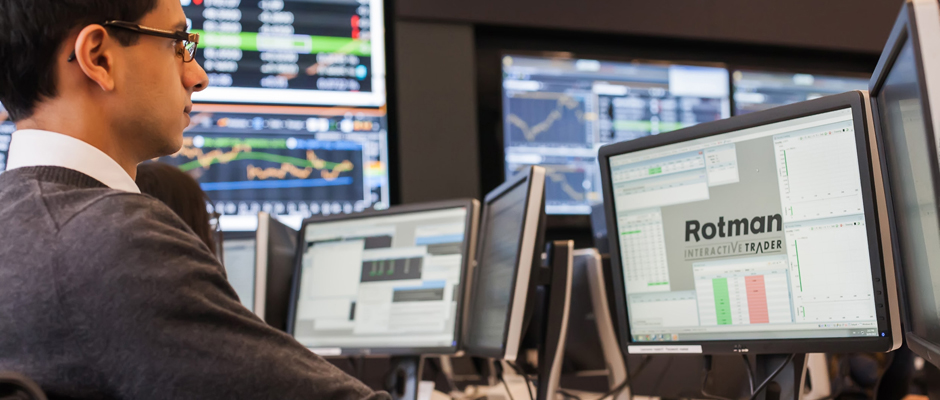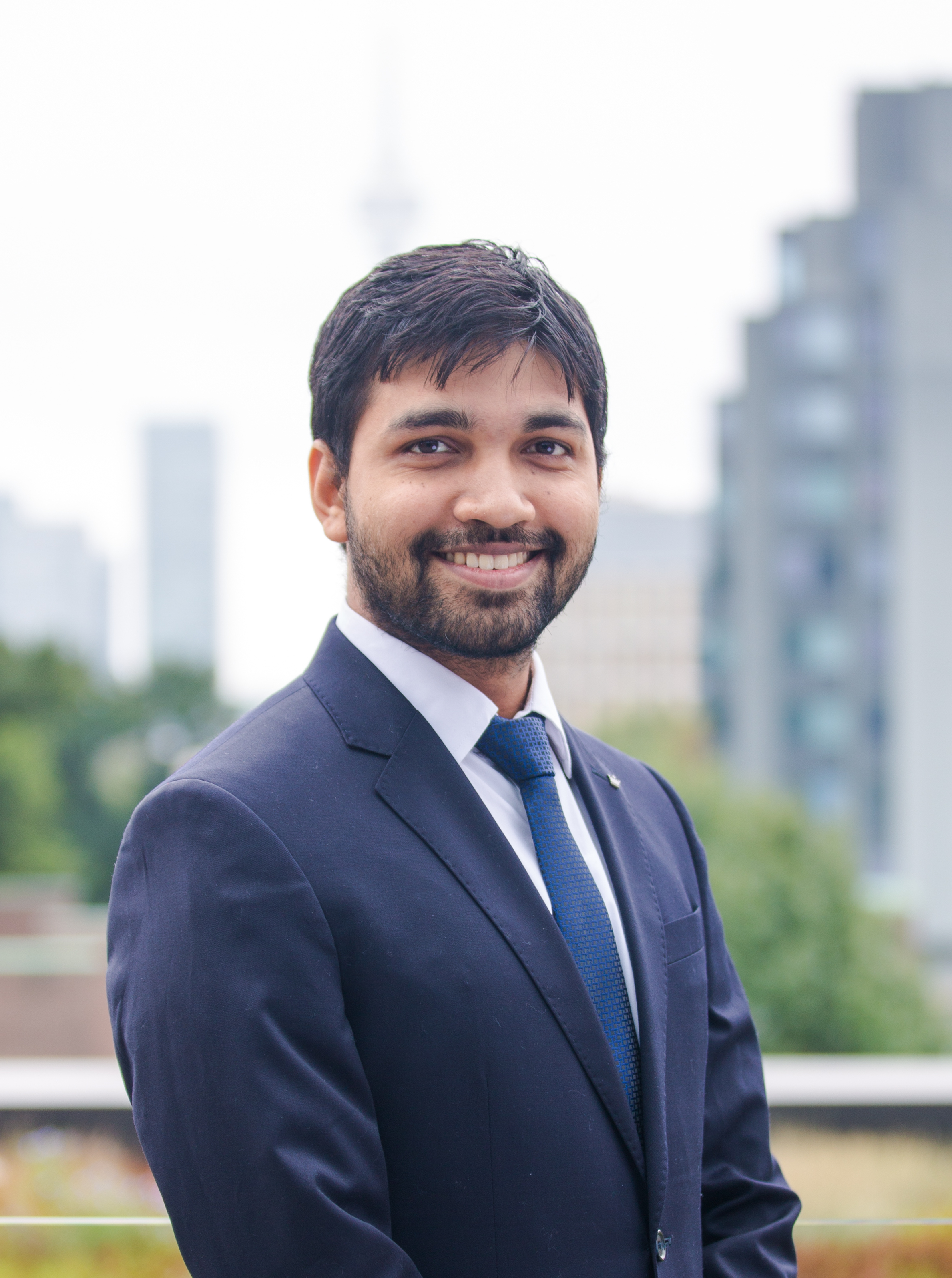Jason Ho (RC ‘20, MFRM ‘21) can pinpoint key opportunities during his time at Rotman that helped him to jumpstart a career in finance.
In addition to courses, internships and networking, it was the hands-on simulations through the BMO Financial Group Finance Research and Trading Lab (FRT-Lab) that gave him a competitive advantage to land his job at RBC.

“The real world is very different from a classroom setting—what we learn in the Lab is very representative of what you actually see in the industry,” says Ho, who began his role as a data scientist at RBC Capital Markets in July, after graduating as valedictorian from the Master of Financial Risk Management program.
He became well-versed using the lab’s Rotman Interactive Trader Market Simulator and Rotman Portfolio Manager through two courses — a financial trading strategy course in his undergraduate Rotman Commerce program, and a financial risk management course during his MFRM.
Both were taught by Craig Geoffrey, academic co-director of the Trading Lab and an assistant professor of Finance in the teaching stream.
“Simulation-based learning in finance ensures students know what they are doing when working with real markets — they become robust decision-makers,” says Geoffrey.
“What they are confronting and learning in the classroom is what they will be faced with on the job.”
A state-of-the-art facility for research and teaching
Founded in 1999 by Tom McCurdy, academic co-director and a professor of Finance, the Lab has evolved over the years from an information portal to a dynamic learning centre.
Its focus is on developing products that integrate research and teaching with practice, such as the Market Simulator.
The lab’s capabilities for simulation-based learning now have a global reach — more than 60 top universities and companies around the world use the simulator, as well as the decision cases and investment management platform to train students and new hires.
“At Rotman, the lab is much more than our simulation-based learning products— it provides resources for research, teaching and learning for the whole School,” says McCurdy, noting that the lab’s wealth of data — from historical market data to information about companies — reaches beyond the finance curriculum.

Since March 2020, students have connected remotely to the lab’s resources, including the portfolio of simulation-based learning decision cases. The technology is still accessible 24/7 for students and faculty — just like when the lab’s 70 workstations and industry-standard tools were open for drop-in sessions before the pandemic.
“Enabling our resources to be available for both in-person and remote users is paramount to ensure a high level of engagement and support for students, faculty and beyond,” says Bachir Chehab, associate director of the Lab.
An unparalleled student experience
"Getting exposure to how things actually work on the trading floor is incredible, and you still feel the competitive energy even online,” says Ilya Kudzelka (MFin ‘22). The Lab was one of the reasons he chose to pursue his Master of Finance at Rotman.
“Every year, the team keeps improving the technology. I was amazed by the quality of cases we had, whether we were using the interactive trader or portfolio manager.”
In McCurdy’s course for MFin students on forecasting risk and opportunities, students complete 10 decision cases in portfolio management, risk management, investment strategy and trading.
“Everything is so hands-on, and that’s what gives us an edge compared to other candidates,” says Kathrine Dominguez (MFin ‘22),who previously worked in accounting and operations after completing her CPA and CFA.
By the time she finished McCurdy's course, Dominguez says she felt empowered to pursue a new career in finance after graduation — perhaps in sales and trading or investment banking.
“If you're trying to enter the field, it might be a hurdle if you don’t have prior experience in trading, but this specific course effectively gives you that experience. You leave with a portfolio of trading algorithms that you have developed and tested, and you can speak to your strategy and results,” says Dominguez.
The spirit of competition
For Preyas Patel (MBA ‘20), his participation at two Rotman International Trading Competitions gave him even more exposure to the competitive world of finance.

With prior investment and risk management experience in Mumbai before he started his Full-Time MBA, Patel says he wanted to understand the theory behind his work and apply more innovative approaches in his work in Toronto.
“The competitions and the financial trading course helped me immensely,” he says, looking back on his time in McCurdy’s risk modeling and financial trading strategies course for MBA students.
In January 2021, Patel joined BMO Financial Group’s corporate treasury team as a senior analyst in corporate funding.
“Now that almost a year has passed since I started at BMO, I really see how important those simulations were. We learned portfolio and risk management not just theoretically, but applied to real-world scenarios,” he adds.
Next year, Rotman will expand the competition to the Middle East. In partnership with HSBC Middle East, the four-month learning experience will focus on environmental and sustainable practices when making financial decisions.
Participants will use environmental, social and governance ratings as a guiding principle when developing and testing their strategies using the market simulator and portfolio manager.
“Our goal is to create a legacy in the future of sustainable finance by developing advanced skills in sustainability in the next generation of leaders,” says Chehab.
Written by Jessie Park | More Student Stories »